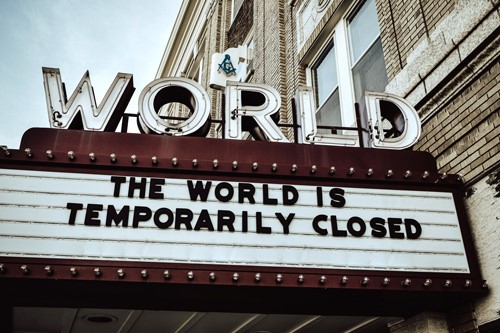After the Pandemic: 7 Lessons for Smart Marketing Planning
 If you’re like most marketers, you never could have anticipated an event as deadly, destructive, and disruptive as the Covid-19 pandemic. Almost no one imagined a crisis of this magnitude.
If you’re like most marketers, you never could have anticipated an event as deadly, destructive, and disruptive as the Covid-19 pandemic. Almost no one imagined a crisis of this magnitude.
As the pandemic tide begins to turn, it’s a good time for marketers to reflect on this experience.
What can we learn about marketing planning from such a seismic, once-in-a-lifetime event? And can these lessons help us be better prepared for similar disruptions in the future?
As a marketing consultant, I worked with several clients to manage marketing and communications during the pandemic. Here are some insights I gained from this experience that could apply to your smart marketing strategy.
7 Strategic Lessons for Smart Marketers from the Covid-19 Pandemic
The pandemic forced marketers everywhere to rethink their approaches. Some marketers stopped promoting entirely, while others adjusted and prevailed. Here’s what we can learn from those who successfully navigated an unprecedented challenge.
1. A marketing plan helps you be better prepared.
If disaster should strike your industry or your business, you will be far better prepared to respond if you have a marketing plan and framework in place to guide your marketing activity.
Why? Because you already have determined your priorities, messages, resources, channels, and tactics. You have a roadmap for the journey you’re expecting to take. Even if you have to change direction, it’s far easier to adjust a plan than to have to come up with one from scratch in the middle of chaos.
2. You can and should prepare for change.
Change happens and it can happen fast. Smart marketers always plan for contingencies, even in calmer times. You can anticipate events that could impact your approach to marketing, such as:
- External changes: Regulations, government actions, competitive shifts, or economic and market developments;
- Internal changes: New company leadership, service or product changes, mergers and acquisitions, or other major plans for the business.
You can build in contingencies for these types of changes when you’re planning marketing. Plan for the most likely and most high-stakes “what-if” scenarios. Even if you’ve only outlined your potential response, you’ll be light years ahead if “what if” becomes reality.
3. Keep a laser focus on your business goals and priorities.
The purpose of marketing is to support the goals of the business. When you’re blindsided by the unexpected, do not lose focus on your business goals. No matter what is happening around you or what the outcomes could be, you need absolute clarity on what matters most to your organization and your audience to respond effectively with marketing and communications.
4. Be a perceptive listener.
I have always believed that listening is the most powerful skill in marketing. In times of crisis or change, you need to pay closer attention than ever before to what your target audience is saying, thinking, and feeling. Be sure you have solid mechanisms in place for listening, like regular customer research and constant monitoring of social media, plus well-honed skills to understand how your customers and prospects are being impacted emotionally.
5. Build a team that’s flexible and creative.
The past year vividly illustrated how suddenly a workplace or business could need to adapt and adjust. Marketers who were dependent on in-person events or retail channels had to go virtual in a flash. In my experience, the ones who succeeded had a staff and suppliers who were creative, flexible, and fast-thinking – people who could quickly find alternatives and make them work. These are the types of people and partners you want on your team going forward.
6. You may not want to go back to the “old” ways of marketing.
Don’t assume that once the pandemic is over, you’ll be back to marketing as usual. Some changes in your market, channels, messages, or tactics may be permanent – and that’s not necessarily a bad thing.
Crises can create new solutions that are more effective than your old ways of doing business. Smart marketers may realize that new approaches deployed during the pandemic have real benefits over pre-pandemic approaches.
7. Strive for a realistic state of strategic readiness.
The reality is that you can’t anticipate every type of change or event that could affect your business or your market, especially a massive health threat on a global scale. So don’t beat yourself up for not being ready for the pandemic. No one was.
But there are steps you can take now to be in a realistic state of strategic readiness with your marketing if a major disruption happens in the future. Foresight, flexibility, and planning can increase your odds of success.





No Comments
Sorry, the comment form is closed at this time.